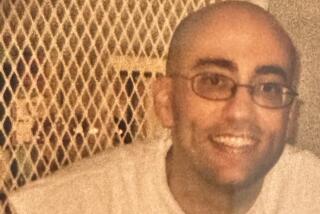Defendant in the D.C. Sniper Trial Risks Suicide by Jury
Should a defendant facing the death penalty have the right to defend himself, even if his defense will be unprofessional and could result, potentially, in his own execution? That may be the question the U.S. Supreme Court eventually faces in the case of Virginia vs. John Allen Muhammad, the alleged mastermind of the D.C. sniper murders.
The high court has long held that defendants have the right to represent themselves. In 1975, the justices decided 6 to 3 that a mentally competent defendant has the constitutional right to fire his court- appointed lawyers and take over the case himself.
The court reasoned, and many academics agreed, that because it is the client whose life and liberty are ultimately at stake, it is the client who should have the ultimate say over the direction of the case. They were perhaps mindful of the old story about the client who loses his case and asks his lawyer, âWhere do we go from here?â The lawyer responds: âWhat do you mean âweâ? I go back to my office. You go to prison.â
Not everyone agreed with the courtâs majority. In dissenting, Justice Harry A. Blackmun cited the proverb that âone who is his own lawyer has a fool for a client.â
And when the potential penalty is death -- as it is in the Muhammad case -- there is even more at stake than foolishness. If Muhammadâs right to represent himself is upheld, we may well be bestowing on defendants a constitutional right to commit suicide -- judicial and literal.
Although it is well established that many lawyers appointed to represent capital defendants provide less-than-zealous representation to their clients, few would deny that they generally do better than an untrained layperson with no experience whatsoever in the courtroom.
Moreover, there is, at least in theory, a safety net in cases in which the defendant is represented by a lawyer: That lawyer must meet the admittedly minimal standards of âeffective assistance of counsel.â History has generally proved the truth of the adage about fools and clients. The cases most frequently cited are those of Dr. Jack Kevorkian and Colin Ferguson.
Kevorkian, the advocate of assisted suicide, was acquitted three times when represented by counsel but convicted in 1999 when he chose to represent himself. Ferguson, who boarded a Long Island Railroad train and killed several commuters in 1993, made a fool not only of himself but also of the legal system when he invoked bizarre biblical defenses at his trial and was convicted.
There have, however, been some success stories, though they usually involve highly intelligent defendants and special circumstances. Angela Davis made the closing arguments in one of her cases and succeeded. So did Clarence Darrow, who took over his own defense when he was tried for bribery; he was of course a great criminal lawyer.
The only real strategic advantage of defending oneâs self is this: In an ordinary case, the defendant may not speak unless he or she is willing to be cross-examined by the prosecution. But if the accused defends himself, he is then allowed to make opening and closing arguments without being cross-examined.
It is unclear whether Muhammad plans to take advantage of that. Instead, he may take the stand (questioned, most likely, by his standby counsel), and be subject to cross-examination, losing whatever strategic benefit he may have had.
If Muhammad is convicted of the murder of Dean Meyers he will face another daunting challenge: Lawyers usually present evidence to âmitigateâ the horror of the crime in hopes of avoiding the death sentence, and the evidence often tends to involve issues such as mental and emotional deficiencies. Will Muhammad speak to his own deficiencies? It is possible that the court may require that Muhammad be represented by counsel during this phase of the trial.
Muhammad may have decided that the case is hopeless and that if he is going to die, he might as well participate in his final public appearance in a more active way.
If that is so, there may be little to be done to stop him. But we should be clear about this: The state -- by letting him represent himself -- is engaging in assisted suicide.
More to Read
Sign up for Essential California
The most important California stories and recommendations in your inbox every morning.
You may occasionally receive promotional content from the Los Angeles Times.










